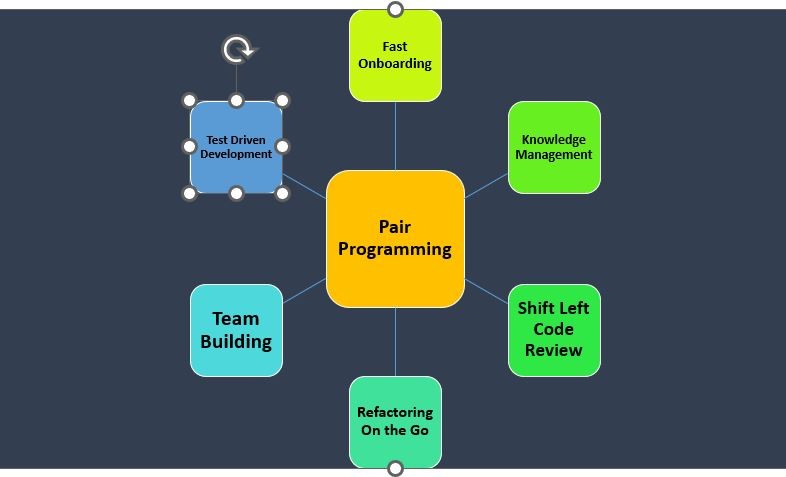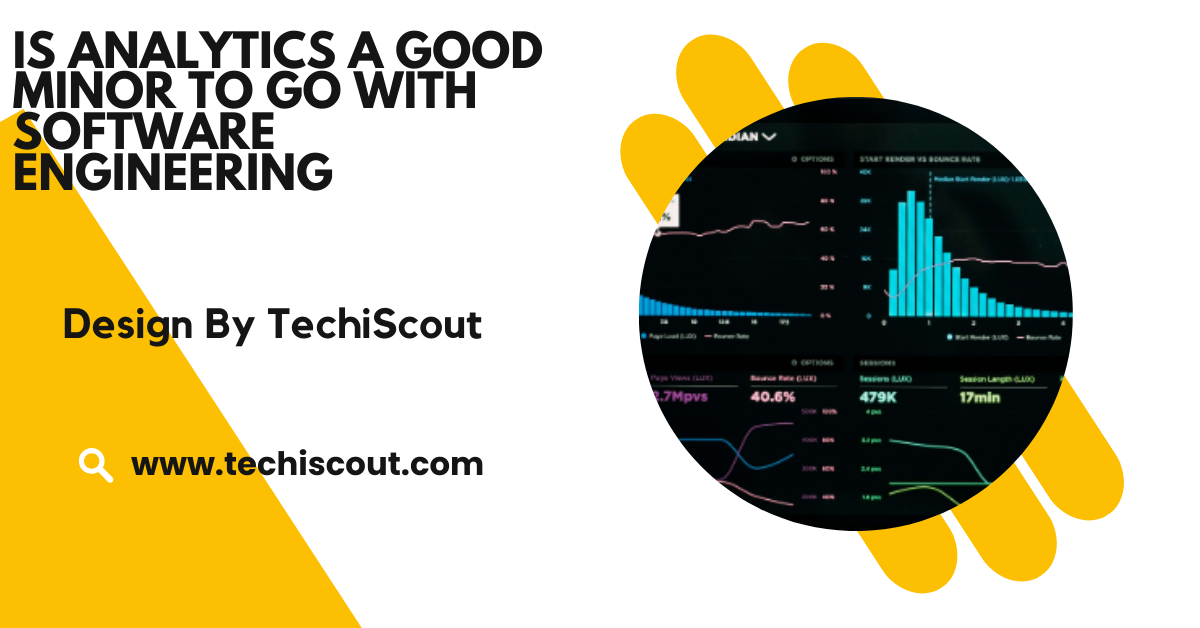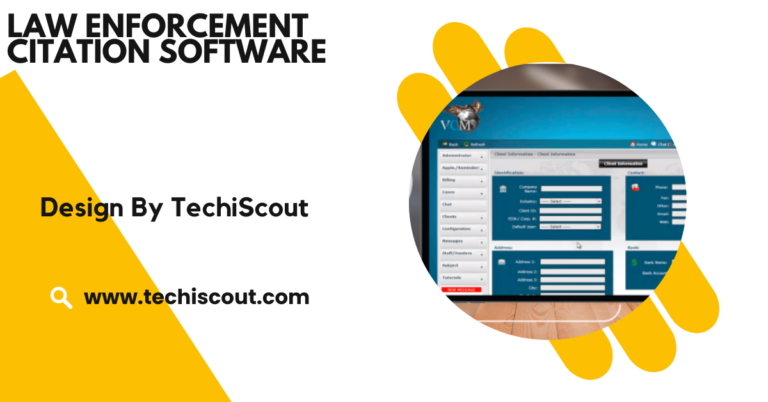Is Analytics A Good Minor To Go With Software Engineering – Key Benefits Explained!
Yes, analytics is a valuable minor for software engineering, offering data-driven skills and expanded career opportunities.
This article explores is analytics a good minor to go with software engineering,its benefits, potential career opportunities, and tips on making the most of this combination.
Table of Contents
Why Pair Analytics with Software Engineering?

Software engineering is about designing, developing, and maintaining software solutions. Analytics, on the other hand, involves gathering, interpreting, and using data to inform business decisions.
Together, these disciplines create a powerful synergy, as the skills learned in analytics can help software engineers understand user behavior, improve product functionality, and make data-driven decisions.
Benefits of Minoring in Analytics for Software Engineers:
Data-Driven Decision Making:
An analytics minor equips software engineers with skills in data interpretation, enabling them to develop software that meets real-world needs. By understanding how to gather and analyze user data, software engineers can enhance user experience and optimize performance.
Enhanced Problem-Solving Skills:
Analytics involves a lot of problem-solving—identifying trends, understanding user behavior, and interpreting data insights. For a software engineer, these skills can lead to more innovative solutions, as they’ll be able to analyze a problem from a data perspective.
Broader Career Opportunities:
With a software engineering degree and an analytics minor, graduates are attractive candidates for a range of roles, including data engineering, product development, and machine learning. The versatility offered by both skill sets can help students stand out in a competitive job market.
Increased Earning Potential:
Professionals with analytics skills often earn higher salaries due to the high demand for data-driven expertise. Combining software engineering with analytics can lead to specialized roles, which frequently offer premium compensation.
Top Career Paths with Software Engineering and Analytics:
Data Engineer:
Data engineers build and optimize data architectures, ensuring data flows smoothly through systems. With both analytics and software engineering skills, these professionals can create effective data pipelines and improve the accessibility of data.
Machine Learning Engineer:
This role involves creating and deploying algorithms that enable machines to learn from data. With analytics knowledge, software engineers can design and implement models that make predictions and automate processes, giving them an edge in this high-growth field.
Product Manager:
Product managers guide the development of software products, focusing on user needs and business goals. An analytics minor can be highly beneficial here, as it provides the tools to make data-backed decisions on product features, functionality, and user experience.
Business Intelligence (BI) Developer:
BI developers create systems that allow businesses to gather and analyze data for better decision-making. Combining software engineering with analytics is perfect for this role, as it requires technical and analytical abilities to design tools and dashboards that provide actionable insights.
Full Stack Developer:
As a full stack developer, having analytics skills can enhance a developer’s ability to work on both the frontend and backend of applications. Understanding data can help them optimize applications to better serve users and align with business goals.
Read Also: Software Updates Error Id 3104046
Key Skills Gained with an Analytics Minor:
Data Analysis and Visualization:
Analytics courses teach how to interpret complex data and present it in an understandable format. This is crucial for software engineers, as it allows them to visualize performance metrics and user behavior to improve software solutions.
Statistics and Probability:
Knowledge of statistics is valuable in software engineering, especially in fields like AI and machine learning. It helps in understanding data patterns, building algorithms, and making predictions, all of which are essential in software development.
Database Management:
Managing and querying databases is a skill shared by both software engineering and analytics. Familiarity with database systems, such as SQL, can enhance a software engineer’s ability to handle data-related tasks more efficiently.
Programming for Data Science:
Many analytics programs teach programming languages such as Python and R, often used in data science. These skills can complement languages like Java or C++ that software engineers typically use, broadening the scope of projects they can tackle.
Data-Driven Project Management:
In software engineering, project management is key. With analytics, engineers gain the ability to manage projects based on data insights, enhancing project outcomes and aligning better with stakeholder expectations.
Tips for Maximizing the Combination of Software Engineering and Analytics:
Seek Real-World Projects:
Apply your analytics skills to software engineering projects. Look for opportunities to analyze user data, optimize code based on insights, or automate processes using data-driven algorithms.
Develop Strong Data Visualization Skills:
Learning to present data clearly can be incredibly valuable. Invest time in mastering tools like Tableau, Power BI, or Python libraries such as Matplotlib, which can help make complex data accessible to non-technical stakeholders.
Network with Professionals in Both Fields:
Attending tech meetups, joining professional organizations, and connecting with both software and analytics professionals can open doors and keep you informed on industry trends.
Pursue Certifications
Certifications like AWS Certified Data Analytics or Google Analytics can validate your expertise and may enhance job prospects.
Is Analytics the Right Minor for You?
Choosing a minor should align with your career goals and interests. If you enjoy problem-solving, data-driven projects, and have an interest in emerging tech like machine learning, then analytics could be an excellent minor to complement your software engineering major.
Analytics brings a practical, business-oriented perspective that can make your software engineering skills more applicable across different industries.
Ultimately, the combination offers a strong foundation for careers that value both technical prowess and the ability to interpret data effectively.
FAQs:
1. Why should I choose an analytics minor with software engineering?
An analytics minor complements software engineering by enhancing your ability to make data-driven decisions and solve complex problems.
2. What careers can I pursue with a software engineering degree and an analytics minor?
You can pursue roles such as data engineer, machine learning engineer, product manager, or business intelligence developer.
3. Does adding analytics to my software engineering degree increase my earning potential?
Yes, professionals with analytics skills are in high demand, often leading to higher salaries in specialized fields.
4. What key skills do I gain from an analytics minor?
You gain skills in data analysis, statistics, database management, programming for data science, and data-driven project management.
5. Is analytics a good minor if I am interested in machine learning?
Yes, analytics provides essential skills for understanding data patterns, building algorithms, and developing machine learning models.
Conclusion
Pairing a software engineering degree with an analytics minor creates a valuable skill set, equipping students to solve complex issues, design user-centric solutions, and make data-driven decisions. This combination opens doors to roles in data engineering, product management, and business intelligence, boosting career opportunities and marketability.






